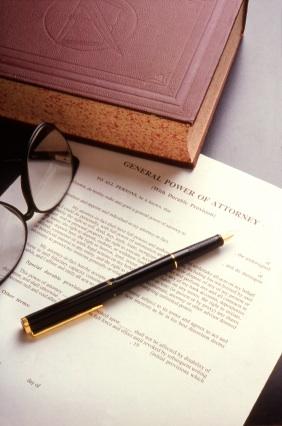
For older people who are considering getting their affairs in order, there are often many frequently asked questions about power of attorney. The information provided here is of a general nature. For advice on your personal situation, please consult a qualified attorney for assistance.
Helpful FAQ on Power of Attorney
What Is a Power of Attorney?
A power of attorney is a legal document authorizing another person to act on your behalf. The authorized person is known as an agent. Unlike a will, which provides instructions to be followed after an individual's death, a power of attorney takes effect during the person's lifetime.
Can I Appoint More than One Agent in a Power of Attorney?
You can appoint one agent or multiple agents in a power of attorney.
Is There More than One Type of Power of Attorney?
You can have a general power of attorney to deal with most financial and personal matters. You can also create a durable power of attorney that focuses specifically on different issues like medical ones. A medical power of attorney is commonly called durable power of attorney for health care. With this, a trusted person makes medical decisions for you if you become incapacitated. A specific agent can also be selected to manage only financial or other matters.
Depending on your state of residency, you may have to create more than one power of attorney to deal with specific issues. Your attorney can clarify what you need.
When Does a Power of Attorney Take Effect?
A special power of attorney may be signed in a number of situations. A person may appoint an agent to act on his or her behalf for a specific purpose, such as a real estate transaction, or for a set period of time, such as an extended trip to another state or country.
A general power of attorney comes into effect when the person who signed the document, known as the donor, becomes unable to manage his or her affairs. Before the agent can start to manage the donor's affairs, the donor must be examined by at least one physician to confirm that the donor is not competent to manage his or her own affairs.
Is There a Good Time to Create a Power of Attorney?
It is best to create a power of attorney when you are of sound mind and as a way to plan for incapacity. As long as you are mentally sound when you create the power of attorney, the power of attorney will be considered valid. A senior citizen should consider creating this and other documents early while he is still in good health; you can change your agent if you need to at a later date by revoking the original power of attorney.
How Do You Revoke a Power of Attorney?
A new power of attorney should mention that any old powers of attorney are no longer valid; it is also wise to put this in a separate document. This document should include a statement that you are of sound mind along with your name and that you want to revoke the previous power of attorney. You should also include the date of the earlier power of attorney and the name of the previous agent. Sign this revocation and send it with a copy of your new power of attorney to your new agent and to any institutions that may have a copy of your old document.
How Do You Protect Yourself When Creating a Power of Attorney?
Senior citizens are at higher risk of being a victim to elder financial abuse. If you do not select your agent wisely, your agent can mismanage funds or abuse your trust. To help avoid this, speak to an attorney who specializes in elder law before signing any power of attorney documents. You should also select agents that you trust.
What Standards Must an Agent Follow When Managing a Donor's Affairs?
An agent named in a power of attorney must act in the donor's best interests at all times. The agent is also required to keep records and receipts for all transactions conducted on the donor's behalf.
Is a Power of Attorney the Same as a Living Will?
As you review the FAQ on power of attorney documents, keep in mind that this document is not the same as a living will. The purpose of a living will is to provide instructions to be followed when the person is close to death either due to illness or injury and is not able to give consent to or refuse medical treatment. In many cases, it is best that you have both a living will and a power of attorney.
What Happens if I Become Incapacitated and Don't Have a Power of Attorney?
If a person has not signed a power of attorney and becomes incapacitated or incompetent, his or her spouse, partner, or family members will have to go to court to be given the authority to manage that person's affairs. A person appointed by the court to manage the affairs of another person is called a conservator.
What Happens After the Court Appoints a Conservator?
The conservator may be required to:
- File a detailed accounting of all financial transactions with the court at certain intervals.
- Post a bond to guard against the misappropriation of funds.
- Appear in court to receive permission for transactions involving the sale of real property or making investments on the donor's behalf.
Do I Need a Power of Attorney?
All adults should have a power of attorney. One's whole life can change very quickly due to illness or injury; it makes sense to include a power of attorney as part of one's overall estate planning. If you have further questions or concerns, contact an attorney experienced in estate matters for assistance.







